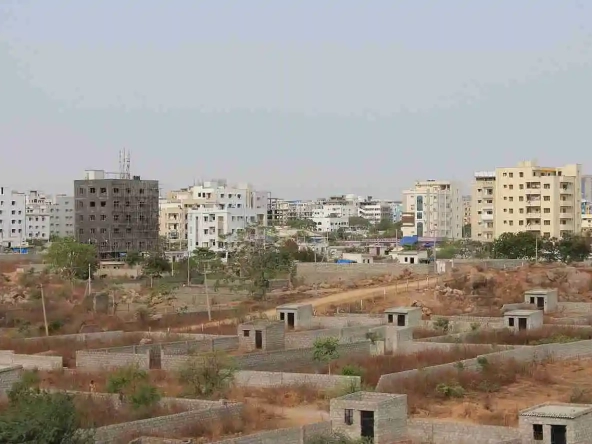The GST rate on real estate was launched in 2017 (1st July 2017). So a buyer must pay taxes while buying a real estate property. GST, or Goods and Services Tax, is one of them. Anyways, many changes have been done to this tax since then.
According to the previous tax regime, the buyer had to pay a number of taxes which included service taxes, VAT, stamp duty, and registration charges in case of buying an under-construction regime.
For the post-completion, property purchases were exempted from the service tax and VAT. If the buyer is buying a complete property, then he has to pay only for the stamp duty and the registration charges.
In generating employment, the real estate sector is the second largest after the IT industry. It makes a contribution of about 7.8% to India’s GDP.
Whatever challenge the industry has faced in the past years may get diluted by enacting the new GST on real estate.
The industry will get relief from all the troubles it has been going through for a long time. Anyways, you must be eager to know the current status of GST on real estate in India.
Announcements on GST on March 2023:
The government has made a few changes to the taxation proposals which were announced in the budget on Friday. The finance minister also addressed the issue that the stakeholders raised.
Near about 60 changes were made in the Finance Bill 2023 under the goods and services tax under the Central GST ACT and infrastructure investment trust (InVit).
This proposal was basically made in the budget to tax the gains from distribution by redemption of units by the business trust at a marginal tax rate for investors from 1st April. Real Estate Investment Trusts (REITs) and InVit are included in these trusts.
Especially in the case of sectors such as roads, they act as a turning point for managing the asset monetization program. The government has also planned to provide relaxation for every taxpayer with an exemption limit of ₹7 lakhs.
GST on a Residential Rental Property:
There should be no GST applied on the use of Rental Property by a Proprietor for Residential Purposes. From 1st January 2023, It had been declared by the Central Board of Indirect Taxes and Customs that the GST would not be payable on residential units rented to a proprietor or a partner for residential purposes.
Anyways, the proprietor would be liable to pay GST on the Reverse Charge Mechanism (RCM) at the rate of 18% only if the rented accommodation is being used for the proprietor’s concern.
Effects of GST on real estate on Buyers:
Now, as per the previous tax regime, a buyer had to pay the service tax, VAT, and stamp duty along with the registration charges for buying a property that is under construction. In addition to this, property prices are different in different states.
Since VAT had been introduced, stamp duty and registration charges were state-taxed. But, other duties were to be paid by the buyer, such as the customs duty and OCTROI, for which no credit is available.
After the introduction of the GST rate on real estate, every construction properties have a fixed tax rate of 12%; on the other side, as per the previous law, there is no GST applicable for any of the complete properties, which led to the buyers to benefit more by reducing the cost under GST on real estate.
The Impact of GST on Builders/ Contractors/ Real Estate Developers:
According to the previous tax regime, the buyer had to pay several taxes, including service taxes, VAT, stamp duty, customs duty, entry taxes for the raw materials, and service taxes on the professional architecture fees and approval charges etc.
As ITC was not applicable for custom duty, CST, Entry Tax etc., it was not more than a burden on the buyers by affecting the pricing. Many other services related to the real estate industry also depend on the decrease or increase of this Goods and Service Tax.
For example, cement previously had a 27-31% tax rate, which has become 18% after the new tax regime. Therefore, as an impact of GST on real estate, an increase in cement price will also increase the overall construction cost.
GST on Real Estate Transaction: The Conclusion
Hope you have got a fair idea of the GST on real estate after going through all the facts. So GST is a fixed rate of 12% on under-construction properties, whereas no GST applies to completed and ready-to-sale properties.
The effect of GST on the real state could be similar to whatever we have observed according to the previous taxation system. Introducing GST on real estate will bring more clarity and accountability to the system. On the other hand, the buyers will benefit more from several involved taxes through GST.
Would you like to know what’s happening in Hyderabad real estate? Click here.





